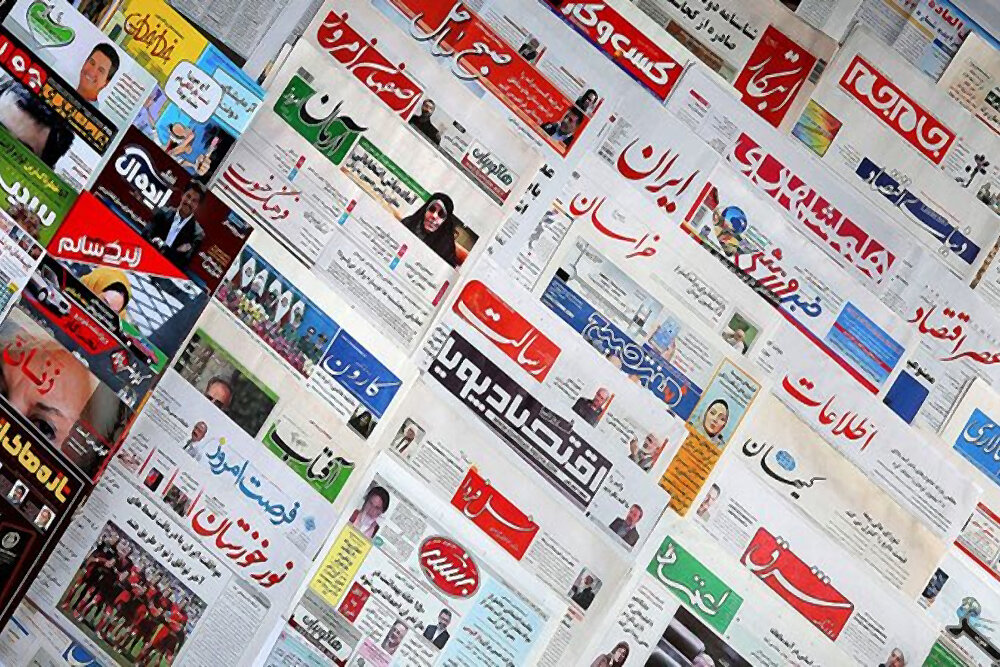Bin Salman's tactics

Although Saudi Arabia took the initiative to talk with Iran, Tehran also welcomed the proposal, Sharq said in a commentary.
These conversations show that Saudi Arabia has Rational Actor Model in foreign policy. Due to Iran's current internal situation, it could have waited for a better opportunity, however it chose China to mediate as Riyadh knew that Tehran would rarely say no to China, and that China also has the authority to be a mediator.
By accepting the proposal, Iran showed that it is not stubborn.
If Saudi Arabia wants to secure its future, it has to get rid of American support.
China's initiative is unprecedented in its history as China does not interfere in any challenge that is not directly related to it. This action showed that Beijing is trying to de-hegemonize the U.S. in the region.
On the other hand, the Chinese are thinking about long-term business in the region, which can only be done by resolving the dispute between Riyadh and Tehran.
Through the negotiation, Saudi Arabia gave a serious warning to America that Riyadh has other friends.
In this short time, Mohammed Bin Salman has shown that he will seek any tactic to make his wishes come true. On the other hand, these talks show that Iran is a powerful country and without interaction with it, no project in the region will be implemented.
Arman-e-Melli: Tehran-Riyadh-Cairo triangle
“Undoubtedly, relations with Saudi Arabia can benefit Iran, and if Tehran can normalize its relations with Cairo, it will have tremendous effects on the Islamic world,” former MP Mohammad Reza Khabaz writes in Arman-e-Melli.
That is, the triangle of Tehran, Riyadh, and Cairo will give new greatness to the Islamic world.
Khabaz went on to criticize the elements who broke the relations between the two countries by storming the Saudi embassy seven years ago and said: Reestablishing the relationship took seven years and it caused a lot of damage to our country.
The former parliamentarian also emphasizes the need to revive the JCPOA agreement and writes: The JCPOA will definitely be very effective in reducing the economic problems, and inflation and also will increase investment in the country.
But with these two or three moves, the country's economic situation will not be improved.
In the end, to improve the situation, Khabaz asked for clarification in the field of economy, so that experts can help the government to improve the economic situation.
Etemad: Rectifying the mistakes
Iran and Saudi Arabia agreed to resume their cooperation after many years.
Although both countries [especially Iran] paid huge costs in the past years due to the tensions between Iran and Saudi Arabiya, their politicians realized that the continuation of such a wrong policy, which resulted from saber-rattling policy in all dimensions, can lead to far greater costs in the future, Etemad wrote in its editorial.
The two countries wisely came to the conclusion that returning to a normal relationship is a step forward.
The recent decision of the two countries is not only a right move, but it can also be a role model for returning from all previous wrong decisions in other fields.
IRAN: Why did Iran adopt the "Look East" policy?
In an article, the Iran newspaper explains the reasons why the Islamic Republic adopted “Look to the East” policy and writes: The Islamic Republic of Iran has been trying to agree with the West for almost three decades and has done the best of its ability to do that, but the West, especially the U.S., has tried to keep Iran in trouble by not fulfilling its commitments. Therefore, this has led Iran to look to the East, and Tehran considers expanding its relations with the East as priority.
The strategic alliance between Iran, China, and Russia in this situation and the rapid increase Iran’s relations with the outside world, especially in recent months, is definitely affected by the negative performance of the West, especially the United States.
Now it seems that the West and the United States believe that Iran is an independent regional power and will tread a path that will lead to slavery and exploitation.
Khorasan: New order in West Asia
In the transitioning security system of the region, we can see the formation of a lot of alliances and coalitions, Khorasan writes in a commentary.
In this context, the ultimate goal of the United States is to accelerate the normalization of relations between the Arab countries and the Zionist regime, along with the continuation of pressure against Iran, to prevent the end of the Syrian crisis and pressure the resistance groups, all in line with building a coalition to maintain the U.S. hegemony in the region.
However, the development process in recent months has gradually shown the ineffectiveness of U.S. policies.
On the one hand, the Arab countries' willingness to restore relations with Syria, and the agreement between Iran and Saudi Arabia, along with the UAE's willingness to end the war in Yemen, were a fatal blow to the Arab-Zionist anti-Iran coalition dream.
Leave a Comment